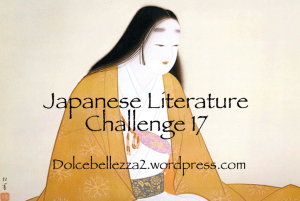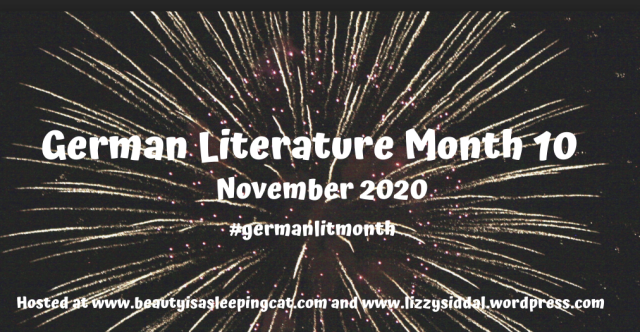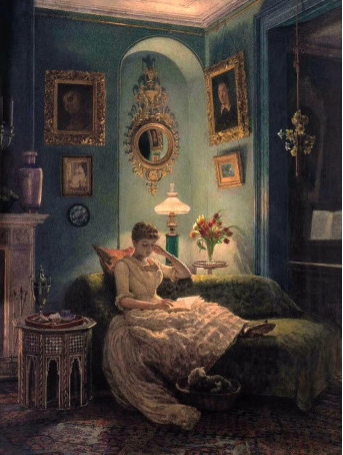
Evening at home
Edward John Poynter (UK, 1836-1919)
I think I’ve been saying this for three years in a row now, but I have to say it again – this wasn’t a great reading year. Looking over the list of books I read, most would say I didn’t pick many duds but unfortunately, I still didn’t like them. Of the books I’ve read, I found 60% disappointing and underwhelming, a few even quite bad. That’s possibly why I reviewed so little. I just didn’t want to write one negative review after the other, although some books would deserve it and I may still do it (“Queenie” I’m looking at you). Once you stop reviewing, it gets hard to get back into it again and so, sadly, I also didn’t review some of those I liked a great deal.
Leaving all the books that annoyed me aside, I was still left with something like thirty that I enjoyed, seventeen of which I loved. So maybe that’s enough? None of them made it onto the “all-time favourites” list though. That’s always a bit disappointing.
Best literary fiction
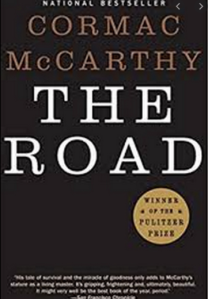
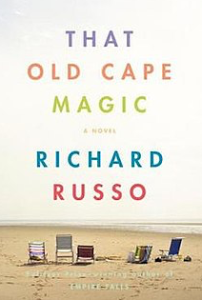
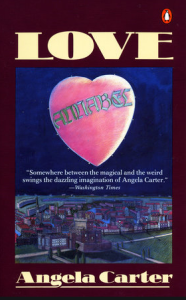
Cormac McCarthy – The Road – I read this early last year. Before the pandemic. I liked it more than I thought I would. Liked the style, the mood, atmosphere. I did, however, hate that it was so anthropocentric. The loss of animals isn’t mentioned or mourned. I can’t say that I found the thought that humans survive while all the other animals are gone uplifting or hopeful.
Richard Russo – That Old Cape Magic – One of the books that surprised me the most. I expected something more lyrical, which it wasn’t but instead it was witty, funny, and just brilliant.
From my review:
When I started this book, I expected something different. Something more lyrical, more atmospheric. But that’s not the way Russo writes. There’s a subtlety here but its more psychological, sarcastic, and humorous. I think it says a lot about a book when someone like me, who prefers lyrical, atmospheric books, ended up enjoying this as much as I did. It’s not only funny but says so much about family dynamics, marriage, broken dreams, family rituals, coming to terms with the past, and also the bond between parents and children and between spouses.
Angela Carter – Love – I loved this. One of the best Angela Carter books I’ve ever read, and I haven’t read anything bad by her so far.
From my review:
Opening an Angela Carter novel is like entering an opulent, sumptuously decorated room. It’s lush, it’s whimsical, it’s anything but minimalist. Love is no exception; it might even be one of the lusher ones I’ve read. Heroes & Villains has always been my favourite because of the imagery. Love has similar elements. The landscape, the apartment, the people, they are a bit wild, a bit mad, and reflect Angela Carter’s very distinct aesthetic. The book also reminded me of one of Le Douanier Rousseau’s paintings. He used to be my favourite painter as a child.
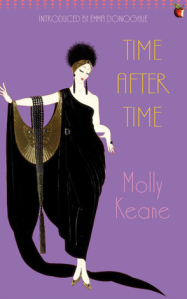
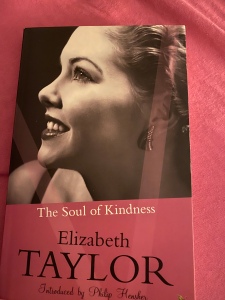
Molly Keane – Time After Time – My second Molly Keane. A delightful story about an eccentric and very dysfunctional family who lives in an old house that has seen much better days.
From my review:
In her foreword Emma Donoghue compares Molly Keane to Jane Austen and Charles Dickens. The book combines, as she says, social comedy, grotesque descriptions and plot twists. I’m not so fond of comparisons like that, but I agree, Time After Time, has all these elements, combined with a terrific writing style, that’s very much her own. For some people these characters might be a bit over the top, but I liked them very much. They are eccentric and mean, but tragic in their own way. And, most importantly, never dull.
Elizabeth Taylor – The Soul of Kindness – While this isn’t one of my favourite Elizabeth Taylor’s novels, as it focuses on too many people, it’s still in many ways a typical Taylor and therefore had to be on this list.
From my review:
There’s a lot to enjoy in this novel but I don’t think it’s as good as others. I believe it doesn’t succeed at being the portrait of one central character like Angel for example, but that’s how the beginning reads. All the initial chapters place Flora at the centre but this cohesion eventually fizzles out. As if Elizabeth Taylor had realized too late that Flora wasn’t a big enough character to carry a whole story. I could be totally wrong, of course, as critics have called this one of her, if not her best book.
Best classics
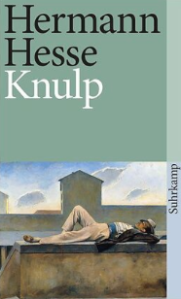
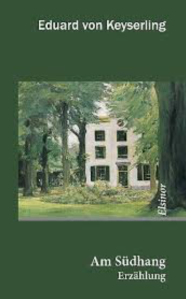
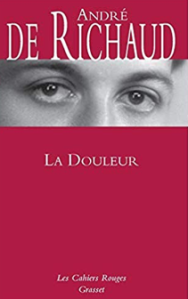
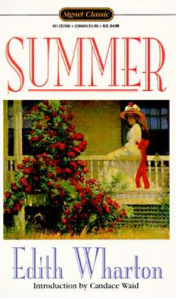

Hermann Hesse – Knulp – Three short stories about the life of the vagabond Knulp. They tell his story chronologically and from different points of view. I absolutely loved this and would urge anyone to read it, especially if you like Hesse anyway. For others, it’s a nice introduction to his writing.
Henry James – Daisy Miller – Daisy Miller is one of many of Henry James’ tragic heroines. It’s cruel to watch how she moves towards her undoing.
From my review:
The society James describes in this novella, is very cruel. They have their rules and if you don’t play by them you get shunned or ostracized. No matter how rich you are.
Daisy Miller is highly readable and very accessible. Even though the end is tragic, it’s neither sombre nor depressing as so many of James’ other books.
Gustave Flaubert – Un Coeur Simple – This impressed me because Flaubert manages to capture a whole life in a few pages.
From my review:
It’s a story that is famous for the way Flaubert handles time. It’s masterful. In sixty pages, he manages to tell the story of a whole life, alternating between fast-forwarding and slowing down. At the end, we almost think, we’ve read a novel because, thanks to his writing style and technique, there’s so much to find in this novella.
Eduard von Keyserling – Am Südhang (not translated)
From my review:
It’s a beautiful novella. Rich in emotions and descriptions. Nature and the weather always play important parts, mirroring the feelings of the protagonists. In this story, the garden descriptions are so very lush. Von Keyserling paints with words. He captures scents and sound, colours and forms. We sit next to Karl Erdmann in his carriage and feel the cool shade under the trees, hear the soft rustling of the dew in the leaves. We can see the family waiting for Karl Erdmann’s arrival, the women in their white summer dresses standing on the stairs.
André de Richaud – La douleur (not translated)
Albert Camus said that André de Richaud’s novel La douleur – The pain – inspired him to become a writer. When it came out in 1930, it created a scandal. The author was just twenty-three years old and had sent his manuscript to the Jury of the Prix du premier roman of the Revue Hebdomadaire. The jury was so shocked but impressed by the writing, that nobody won the price that year. While they considered La douleur too shocking for publication, it was clearly the best book. Despite the risk of a potential scandal, Bernard Grasset published the novel anyway that year, as he liked it so much.
From my review:
Edith Wharton – Summer – This was not what I had expected. I knew it was called the summer version of Ethan Frome and for some reason that made me assume it was more light-hearted. It isn’t. It’s just as tragic as Ethan Frome, only takes place in summer. As usual, I was impressed by Wharton’s style.
Best YA
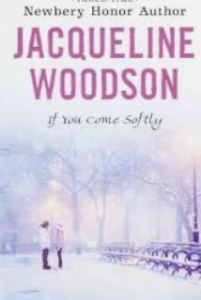
Jacqueline Woodson – If You Come Softly – This moved me so much. It’s a love story with a tragic ending. It shows that if you’re an African-Americaa, one tiny little mistake can have fatal consequences.
From my review:
As I said before, this is a short book but it’s powerful and tightly written. You won’t find a superfluous word or passage. Only key scenes that manage to move and touch.
Best crime /sadly none of them reviewed)
At the beginning of the pandemic, I couldn’t read any crime anymore. Crime usually works as escapism, but not in this context. From May on though, I read one after the other and several were very good, some more than just good.
Good
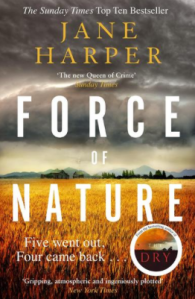
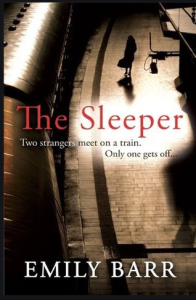
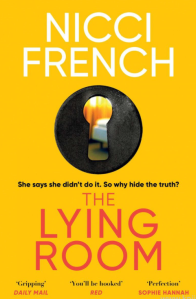
Jane Harper – Force of Nature
Emily Barr – The Sleeper
Nicci French – The Lying Room
These three books have a lot in common. They were highly readable, absolute page turners, each with a striking premise but sadly, all three of them with a slightly implausible denouement. In each case, I found the perpetrator unbelievable, but since they were so well written and gripping, they still deserve to be among the best of.
In Force of Nature, a survival workshop goes very wrong. One woman doesn’t return.
In Emily Barr’s The Sleeper, a woman who usually takes the sleeper train to London, disappears. The first parts, told from the POV of the woman who uses the sleeper train was so good. It gave me a great idea of what it must be like to commute like this every week.
In The Lying Room an adulterous woman finds her dead lover and tries everything to cover up the relationship.
Very good
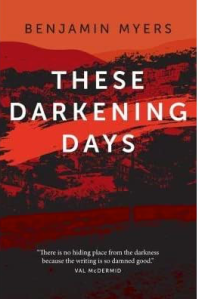
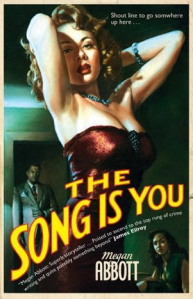
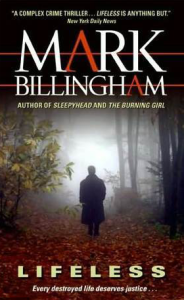
Benjamin Myers – These Darkening Days – I regret that I didn’t review this as I found it amazing. It’s obvious that Myers is way more than ‘just a crime writer’. He’s a stylist. His writing is impressive, and the story and characters were convincing too.
Megan Abbott- The Song is You – The Song is You is historical crime fiction based on a true story, the disappearance of. the starlet Jean Spangler in 1949. She left for a night shoot and never returned. Abbott is a wonderfully atmospheric writer, and this was as good as some of the noir it was inspired by.
Max Billingham – Lifeless – This book has been on my piles for ages. Last year, I read an interview with Billingham and liked what he said about writing. Remembering that I got this on my piles somewhere, I picked it up and finally read it. The book is set in London among the homeless community. The detective who works on the case goes undercover and investigates among the homeless. It’s a chilling read. We learn a lot about what it means to be homeless. After a while, I forgot that this was a crime novel. I was far more interested in the social commentary. That it was suspenseful was just a bonus.
*******
I hope your year has started well and wish you all an excellent reading year ahead.

